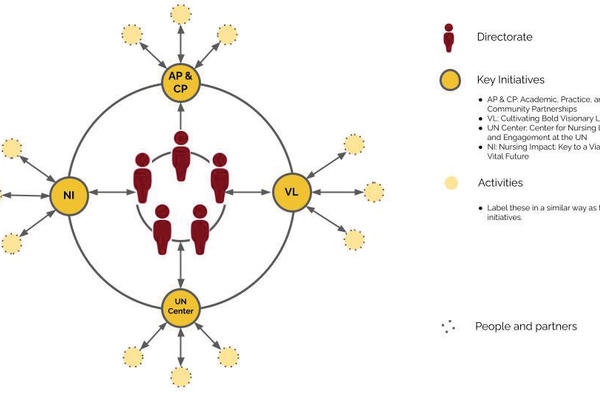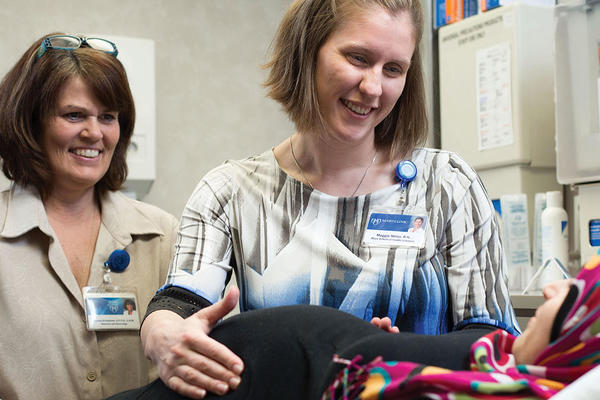Research supports parents of infants prenatally diagnosed with critical congenital heart disease
November 13, 2023

Above: Anne Chevalier McKechnie and Kristin Elgersma
Congenital heart disease affects approximately 40,000 infants born each year in the United States, including 25% diagnosed with critical congenital heart disease (CCHD) requiring immediate surgery and ongoing medical care. Over half of CCHD diagnoses are made prenatally and survival rates have greatly improved in recent decades. Yet, these infants still face serious growth and development challenges. Parents often find themselves seeking ways to feel prepared while struggling with emotional distress. Prenatal counseling and perinatal care vary widely, leaving gaps in addressing parents’ needs for timely, condition-specific information and support.
To provide consistent care and improve outcomes, center members Anne Chevalier McKechnie, PhD, RN, and Kristin Elgersma, PhD, RN, developed a nurse-guided mobile health intervention called the Preparing Heart and Mind™ (PHM™) care program. Developing this innovative care program involved collaboration with industry partner GetWellNetwork, to customize a secure, cloud-based software platform, offering a parent-facing app and a nurse-monitored dashboard. The recent pilot study featured the PHM™ app with 15 care program topics (e.g., handling uncertainty, preparing for hospitalization, feeding your baby), and was organized to include two key sections of Helpful to know and Parent stories in every topic. Helpful to know provided evidence-based information, videos, and links to resources, and Parent Stories were written vignettes describing psychosocial issues with interactive response options. The care program included a dedicated nurse guide who conducted remote sessions (e.g., Zoom) with each family twice before and once after birth.
Feasibility was demonstrated through parents’ engagement with app content and session attendance. Parents tended to engage more frequently with the nine prenatal topics. All PHM™ parents attended the first remote session, at least 96% of parents attended pre- and postnatal sessions, and most (65%) messaged with the nurse. Importantly, there was a clinically meaningful decrease in emotional distress (depressive, anxiety and traumatic stress symptoms) for the PHM™ group compared to the control group.
This is the first study showing the impact of a psycho-educational mobile health intervention on parents’ emotional distress before and after the birth of an infant with CCHD. This novel research underscores the potential of the PHM™ care program to prepare parents for the specialized caregiving required for their medically vulnerable infants and to reduce their emotional distress during the perinatal time.


